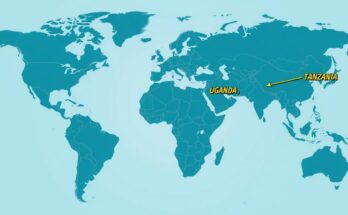In the wake of Bashar Assad’s regime’s collapse, HTS fighters discovered extensive caches of Captagon, a banned drug, in military warehouses. The findings implicate high-ranking officials linked to the trade, including Maher Assad. HTS has announced intentions to destroy these drug supplies, reflecting a complex shift in governance. The situation reveals Syria’s position as a major narco state amidst ongoing conflicts and political transitions.
The recent downfall of Bashar Assad’s regime in Syria has unveiled unsettling truths, particularly concerning the extensive production and trafficking of Captagon, a banned stimulant. Islamist-led forces, specifically the Hayat Tahrir Al-Sham (HTS), have captured significant military facilities, including warehouses that revealed large caches of this illicit drug. During an inspection, HTS operatives presented a substantial collection of Captagon concealed within electrical equipment, implicating high-ranking members of Assad’s circle, notably his brother Maher Assad, who orchestrated this lucrative drug trade.
In a chilling display, HTS fighters exhibited a vast repository of Captagon pills found bundled within new copper coils and voltage stabilizers, underscoring the complexity and scale of this operation. Thousands of pills were reportedly prepared for smuggling, designated for export beneath the pretext of household goods. The operation further illuminated the pervasive links between the Assad regime and drug trafficking, asserting that revenue from Captagon sustains government operations amidst a protracted civil war that has ravaged the nation for over a decade.
This narco-trafficking enterprise entrenched Syria’s reputation as a major player in the global drug market, overshadowing its legal exports to a striking degree. HTS has vowed to eradicate these drug caches, demonstrating newfound authority over military assets associated with the Assad regime. Further evidence of the drug’s prevalence surfaced at former military locations, where HTS fighters incinerated significant quantities of Captagon, publicly denouncing its perilous impact on society.
While HTS transitions into a governing role, its representatives have emphasized a desire to distance themselves from the nefarious drug trade, asserting that they wish to shield neighboring countries from the negative ramifications of the Captagon business. Such actions depict a entity grappling with its dual role as both a liberator and a potential purifier of the Syrian drug culture, amid the ongoing struggles within the country.
The emergence of Captagon as a dominant illegal commodity in Syria correlates with the prolonged civil unrest and the resultant power vacuums. Over the years, Captagon has transformed into Syria’s most significant export, surpassing all other legal commodities. The drug has not only sustained the Assad regime financially during the conflict but has also contributed to extensive regional drug trafficking networks, severely impacting public health and societal safety across the Middle East. The recent takeover by HTS signifies a pivotal shift in control, with potential implications for the ongoing drug trade.
The dynamics surrounding Captagon production and trade in Syria highlight the intricate relationship between drugs and power within the political landscape. With the HTS now controlling former regime assets, their efforts to dismantle the drug trade could reshape not only Syria’s future but also its influence within the region. Nonetheless, the path toward governance presents both opportunities and challenges, particularly in regard to the eradication of harmful narcotic practices that have proliferated under Assad’s rule, thus posing a test for HTS’s governance integrity.
Original Source: www.arabnews.com




